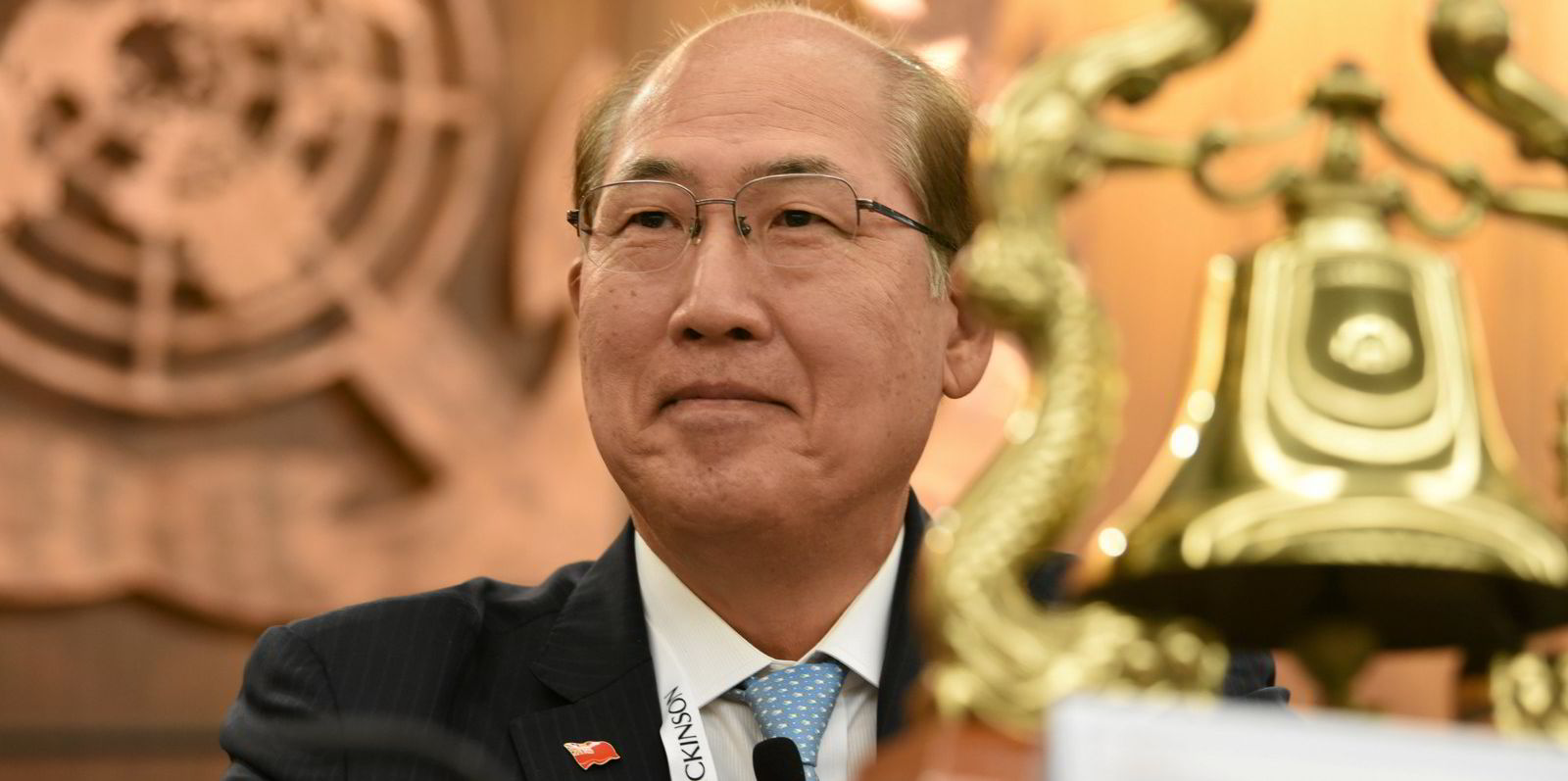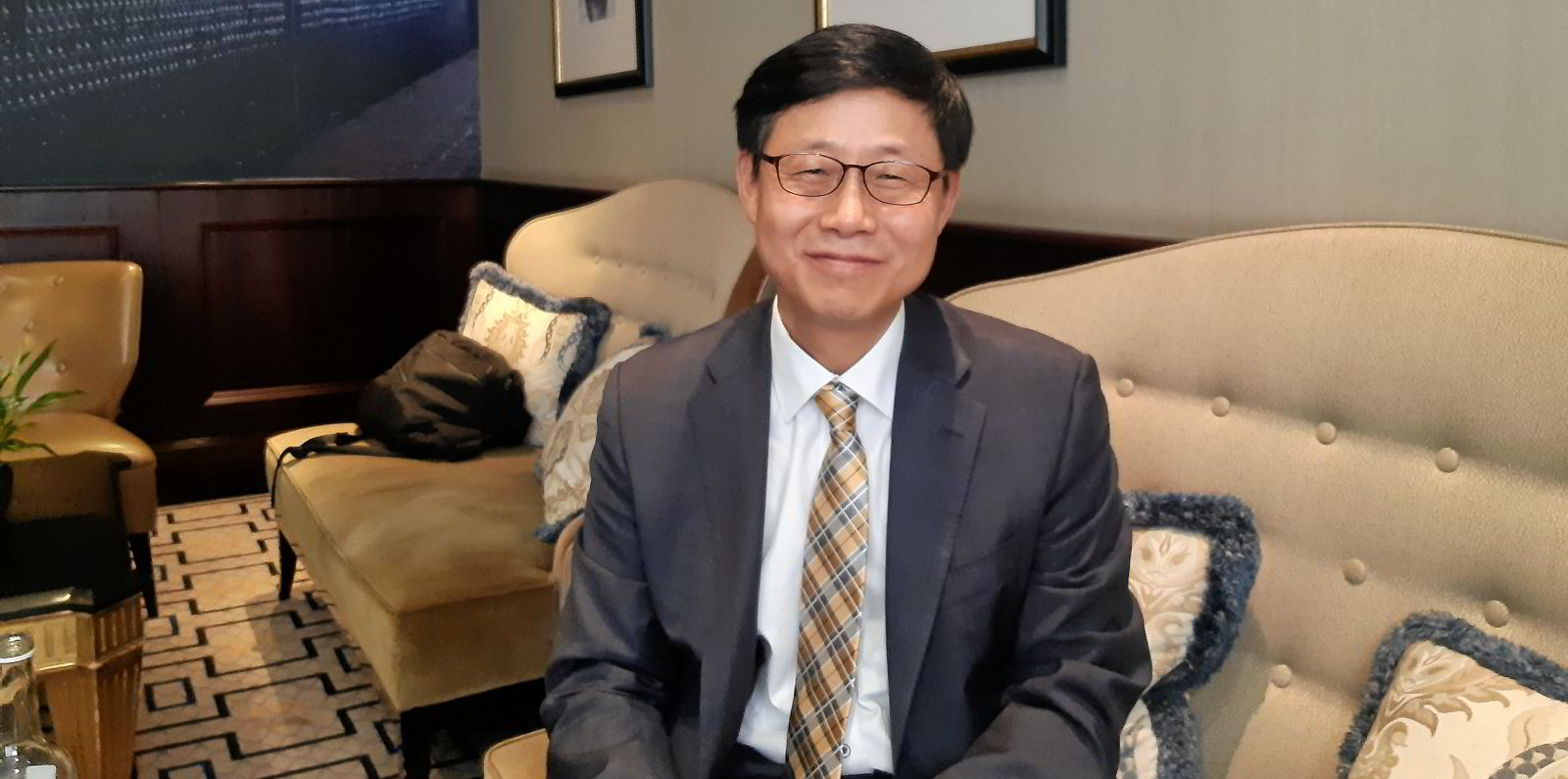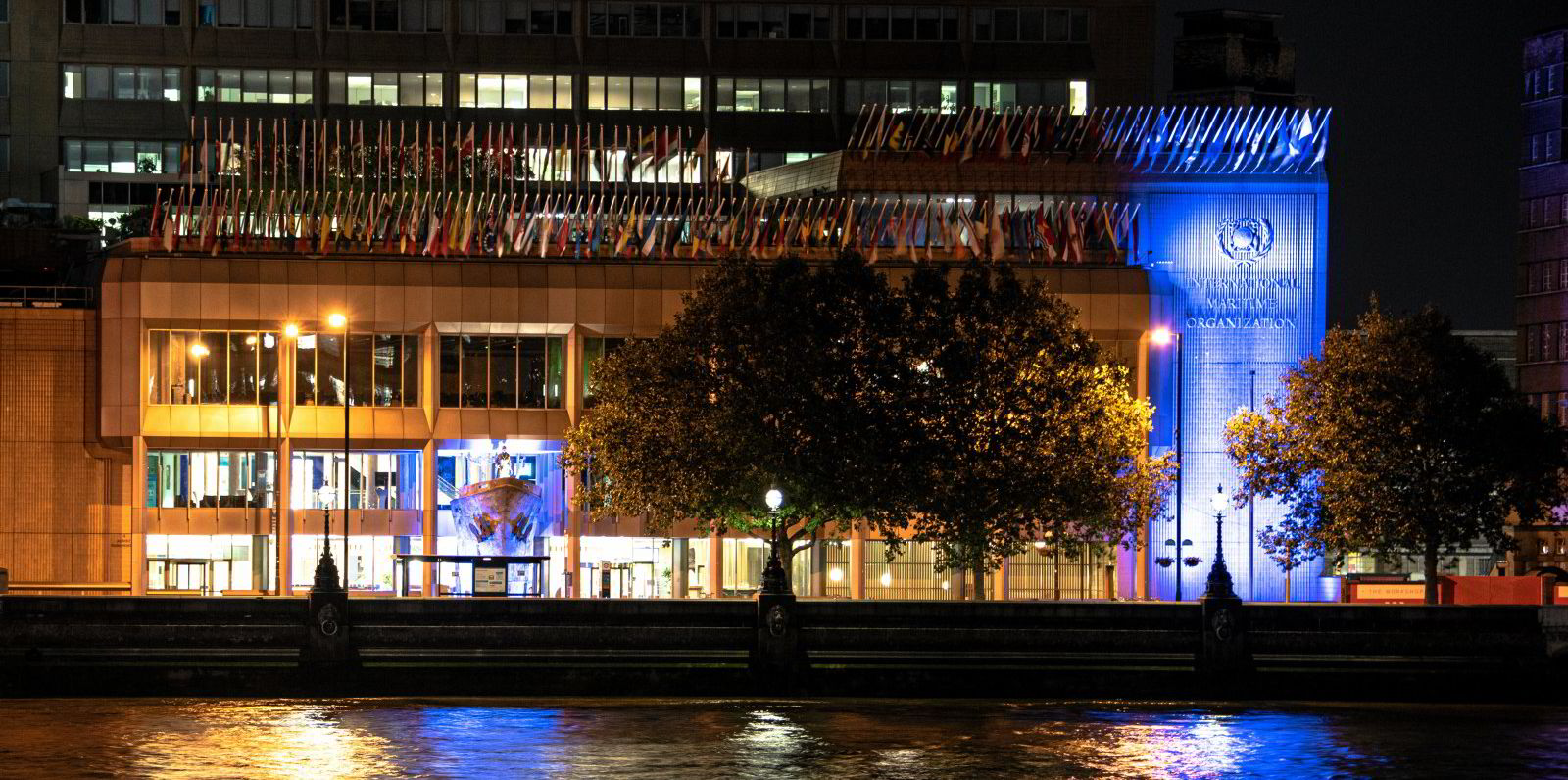South Korea is putting its full weight behind efforts to raise International Maritime Organization decarbonisation goals.
The nation is the world’s leading shipbuilder and a major shipping nation — but, despite its status in the maritime world, has so far not been one of the prominent political voices in the debate.
Sang Keun Song, vice minister at the Ministry of Ocean & Fisheries, visiting Lisbon for the 2022 United Nations Ocean Conference, outlined his country’s commitment to decarbonisation to TradeWinds.
“[South] Korea is well-known for its shipping and shipbuilding industries, and of course now there is growing international momentum to reduce greenhouse gasses in shipping,” he said.
“I believe that the government has a particular responsibility, as a global leader, to actively participate and engage in this movement to radically reduce GHGs.
“It is not something we can address overnight. It requires not only domestic efforts, but also international solidarity must take place to fully tackle the issue.”
At the Lisbon conference, the US representatives were lobbying for international support for multilateral measures, such as green shipping lanes, to promote global decarbonisation. Song said South Korea did not hesitate to give its commitment.
“The US called for the Korean government’s active engagement in the green shipping challenge, and we have responded positively,” he told TradeWinds.
More action needs to be taken at the government level … we recognise the need for financial support to help shipping companies transition
— Sang Keun Song
At the IMO, the European Union, the US and Japan have been calling for zero, or net-zero emissions, to be achieved by 2050, a substantial increase on the current goal of a 50% reduction in GHG levels compared with 2008.
A big obstacle to raising the target is a concern that small island states and developing countries may be affected negatively.
IMO secretary general Kitack Lim, a South Korean national, is neutral in the debate but has set up a working group to look at the implications of net zero before a decision is made next year.
Song said it is important to reach an international consensus on the revised targets.
“A lot of countries, particularly developed countries, are calling out for more ambitious goals to be set by the IMO, maybe set the existing goal to zero emissions,” he said.
“I believe that, on this matter, the Korean government also fully recognises and resonates with the points made by the developed countries at the IMO. At the working level group we are engaging actively with those kinds of meetings for more ambitious goals.
“But Korea is just one part of this, it is a multilateral process and we have to go through all the consultations with our multinational stakeholders.
“It is also important to improve capacity building for developing countries because greenhouse gas reduction should be done at a global level.”

Seoul has been encouraging initiatives in its maritime industry to develop zero-carbon technology and to transition the domestic fleet to low-carbon-emission vessels.
Further policy is being developed to help the local maritime industry be a front-runner in the decarbonisation technology race.
“More action needs to be taken at the government level,” Song said.
“At the policy level, we recognise the need for financial support to help shipping companies transition to cleaner future fuels.
“Also, the engagement from the private sector, including large companies, would contribute to build greener shipping via their financial investment in shipping.”
The South Korean maritime industry research and development projects involve technology and alternative fuels including hydrogen, ammonia and methanol.
Song believes it will give the country a good chance to develop its own independent technology. In the past, South Korea has been reliant on importing ship machinery, principally from northern Europe.
“It is a good opportunity for the shipbuilding industry, because in the past we have imported major key elements from European counterparts like Norway and Denmark,” Song said.
“We would like to further advance our cooperation with those leading nations in green shipping, to learn much from their know-how and expertise to achieve the transition to greener shipping.
“Right now, to achieve decarbonisation, the whole process of shipbuilding needs to change dramatically, and this will be a big opportunity for our shipbuilders because they will be involved from the very first stage.”





